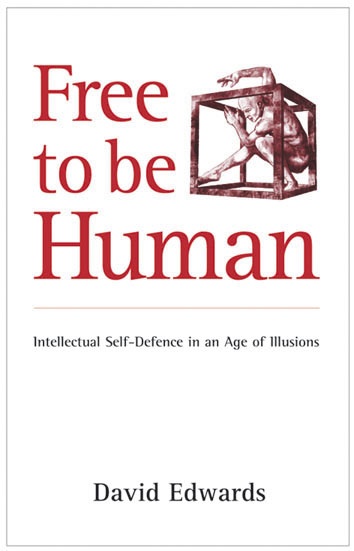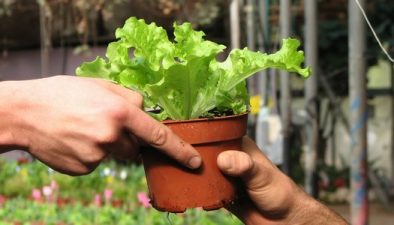
Guest reviewer Jeremy Zauder relishes two views of ethical development in a special double review this week: part of our ongoing Green Prophet ‘Eco-Reads’ green book summer festival:
‘Spiritual Compass’ and ‘Free To Be Human’: Reading these two fine books in succession, I found that they could be companion texts: though different in style and focus, each appealed to a different part of my brain and stimulated lively discussions.
It was good to read “Spiritual Compass” [by Satish Kumar] first. The book is a pleasant, fast read, with nice hand-drawn illustrations. The preface (by Deepak Chopra), the foreword, and “An Invitation” may be too much as an introduction because the same principles are repeated throughout the book.
The framework of Kumar’s topic is the three qualities of life, or three gunas of the Vedic tradition: sattva is the shining moral example towards which we should strive; raja includes the transforming stimulating actions of pursuits for gain or display; and tamas is the inert, dark, destructive means and ends which we should strenuously avoid. For an in-depth comparison of these models, please see the chart I compiled while reading Three Gunas.
These three qualities can be applied to all aspects of life. Sattvic environmental solutions offer simple long-lasting benefits with minimum impact and maximum harmony between people and nature. Rajasic ideas are more complicated. They deal with symptoms, not causes, and are unnaturally forced upon the environment. The root of the word comes from “rajah”, or king. Governments may attempt to lead us towards good, but they usually fail because the goal is not achieved by worthy means. Too much rajas leads to tamas, an empty, depressing, harmful state of existence.
Kumar asserts that today there is excess rajas on our planet, and many people are suffering in tamasic situations. This state of alarm has led to war and terrorism. The dominance of Israel over the Palestinian people is mentioned as a specific example. The solution to the world’s problems, it seems, would be sattvic ideas put into practice.
The most exciting parts of “Spiritual Compass” discuss sattvic ways of living from the perspective of Kumar, a former Jain Monk. He is in tune with current issues like sustainable development and honorable back-to-the-land livelihoods, and recommends non-violence, restraint, and baking your own bread. His discussion of India’s land reform movement was inspiring. There are also chapters on sattvic ecology and economic development.
See a video with Kumar on his book:
[youtube]http://www.youtube.com/watch?v=Gb7lBdtGBjo[/youtube]
David Edwards’ book “Free to be Human” is the book for the left-brain-dominant reader. It is subtitled “Intellectual Self-Defence in an Age of Illusions,” and starting with Noam Chomsky and propaganda models, the reader is thrust into a lively, almost paranoic journey to the heart of “truth” and “freedom”.
The chapters progress logically and build on a foundation of philosophies, including Freud, religion, ethics, Joseph Campbell’s mythology, war, and solitude. Much of the content exposes government hypocrisy. Israel, the United States, pretty much every government in the world can be rightfully accused of unethical conduct and spinning the stories (or outright lying) in their favor.

Edwards succeeds in making personal issues out of political and global concerns. The media and advertising agencies are just part of the larger issue of the goal of all “first-world” societies: making money in big business. The problem, as Edwards and Kumar reiterate, is not poverty (we shouldn’t use rajasic means of benefit concerts and charities to help people) but the distribution of wealth. Wealthy industries are out for themselves and don’t want to share.
I was hoping for more out of the last chapter of “Free to be Human”, which offers a “chest of tools” for intellectual self-defence. Other than healthy skepticism and trying to remain positive, there isn’t too much practical advice. Ask questions and join networks of like-minded people to try and change the world. A chapter on Tolstoy’s life, success, and subsequent psychological breakdown was particularly evocative. The bibliography mentions some intriguing web sites for more social action. I think Kumar and Edwards would agree that the best way to make a positive impact is to think sattvic and act locally.
Spiritual Compass, by Satish Kumar. Published 2007 by Green Books Ltd
Free to be Human, by David Edwards. Published 2007 by Green Books Ltd
:: PDF chart about the Three Gunas:
:: Noam Chomsky article/interview from Haaretz Magazine
Guest reviewer Jeremy Zauder has been a friend of nature since he discovered dirt at age two. Through pinecone-based art and Boy Scout camping, he has explored and shared his appreciation of the world around us. He is currently based in Jerusalem, Israel, hoping for the political rebirth of the Green Leaf Party. Jeremy works as a freelance writer & graphic designer and his blog is really random and out of date.
His wife Sharon would like to add that “reduce, re-use, and recycle” does not mean that he can keep that piece of furniture he found on the street. Green Prophet would like to wish Jeremy, Sharon and particularly brand new little Nadav a huge Mazeltov and green congratulations! Welcome to our big green shiny world, Nadav Zauder-Wagner!!!
This review is part of Green Prophet’s summer ‘eco-reads festival’:
‘Earth Shattering’ Poems
‘Animate Earth’ by Stephan Harding
‘Field Notes From A Catastrophe’ by Elizabeth Kolbert
‘The Emerald Planet’ by David Beerling
‘Confession’s Of An Eco-Sinner’ by Fred Pearce
‘Green Gardener’s




